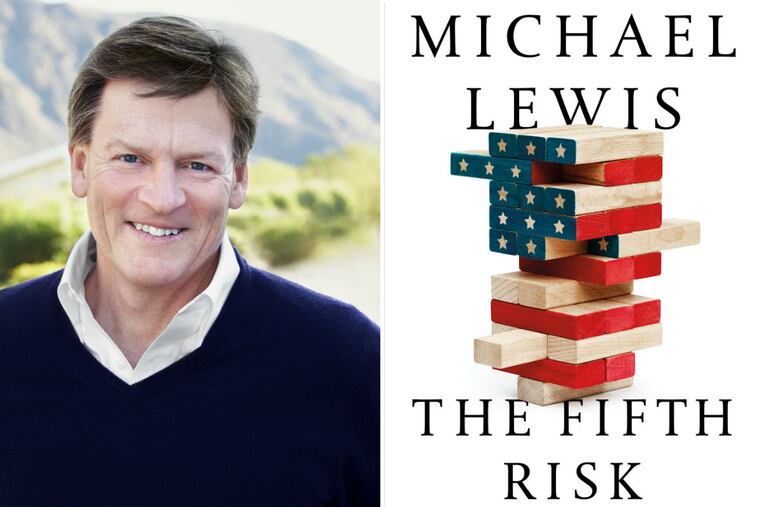‘The Fifth Risk’ by Michael Lewis: The dangers of ignoring science, experts
Lewis, the author of "Liar's Poker" and "The Big Short," makes a compelling argument that the "willful ignorance" of the Trump administration allows it to maximize short-term financial and political gain "without regard to the long-term cost."

The Fifth Risk
By Michael Lewis.
W.W. Norton. 219 pp. $26.95
Reviewed by Glenn C. Altschuler
In the weeks after the presidential election of 2016, civil servants in federal agencies expected to deliver briefings to members of Donald Trump's transition team. It turned out, Michael Lewis tells us, that getting to know the U.S. government "was not high on Donald Trump's to-do list. Even after he learned he'd be running it."
In The Fifth Risk, Lewis, author of Liar's Poker, Moneyball, The Big Short, and The Undoing Project, makes a compelling argument that the "willful ignorance" of the Trump administration allows it to maximize short-term financial and political gain "without regard to the long-term cost." Drawing on interviews with government officials from previous administrations, Lewis takes readers inside the departments of Energy, Agriculture, and Commerce. Hollowing out the federal government and "shrinking the world to a worldview," he warns, is fraught with dangers, ranging from food contamination, nuclear accidents, and weather-related disasters to terrorist attacks on the electric grid.
Lewis provides detailed examples of the contempt for science, lack of expertise, political agendas, and conflicts of interest among officials of the Trump administration. Secretary of Agriculture Sonny Perdue, we learn, recently announced that the USDA would no longer require schools to meet whole-grain and sodium standards, or ban fat in artificially sweetened milk. Mick Mulvaney, acting head of the Consumer Financial Protection Bureau, is ending public access to records of consumer complaints against financial institutions. After Hurricane Maria, FEMA deleted from its website information on access to drinking water and electricity in Puerto Rico. And the Trump administration has eliminated funding for research on climate change.
In 2017, Trump appointed Sam Clovis as chief scientist at the USDA. He was not a scientist. (Clovis lasted but five months on the job; Trump has nominated Scott Hutchins, an entomologist by training, to replace him.) Trump's nominee to head the National Oceanic and Atmospheric Administration is the CEO of AccuWeather, a for-profit weather company, who wants to stop the National Weather Service, his competition, from building an app to disseminate disaster warnings to the public.
President Trump, of course, is entitled to appoint people who will implement his policies. That said, Lewis notes many of the challenges that federal agencies face — "how to stop a virus, how to take a census, how to determine if a certain foreign country is seeking to obtain a nuclear weapon" — are more technical than ideological. As The Fifth Risk documents, expertise and experience matter, a lot — and, alas, many deeply knowledgeable people have left government service, and are now forbidden by federal law from making contact with their replacements. Most important, perhaps, this book makes it more difficult to deny that government can be and has been the solution, not the problem.
Glenn C. Altschuler is the Thomas and Dorothy Litwin Professor of American Studies at Cornell University.